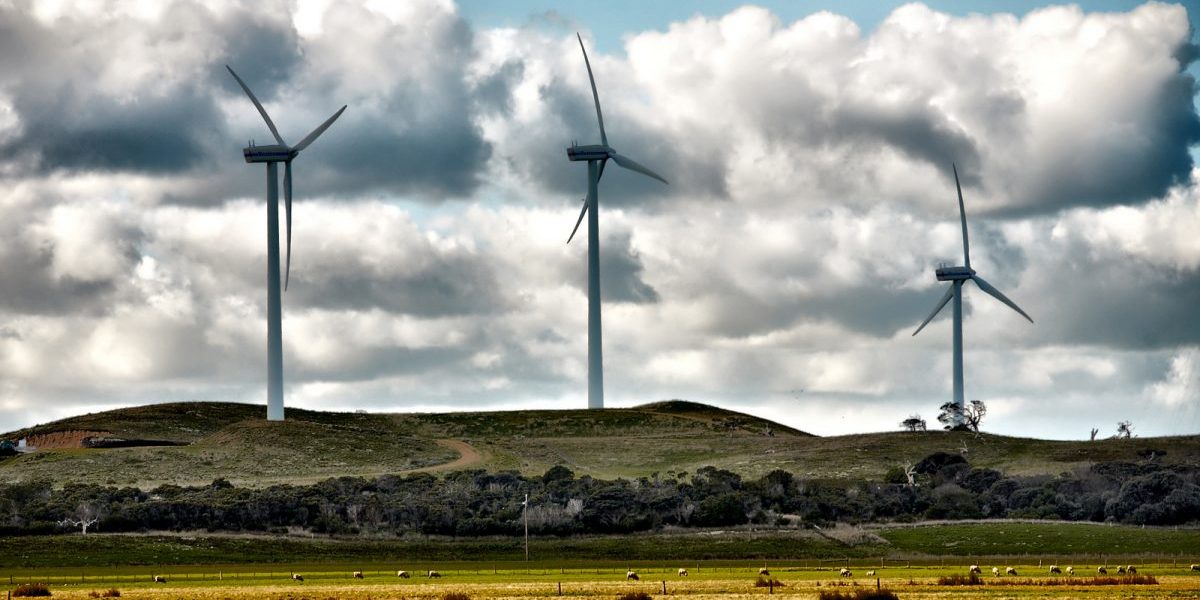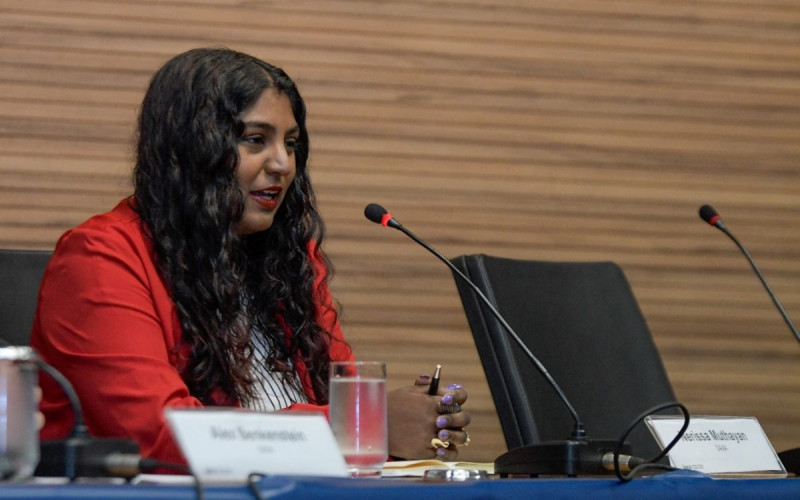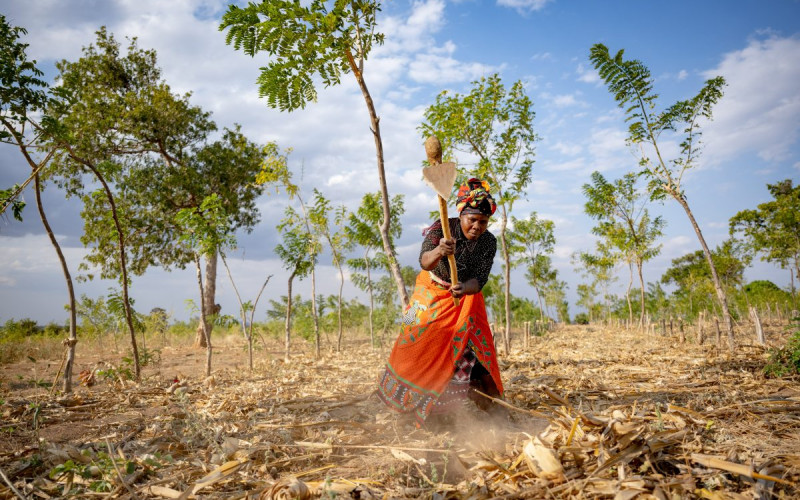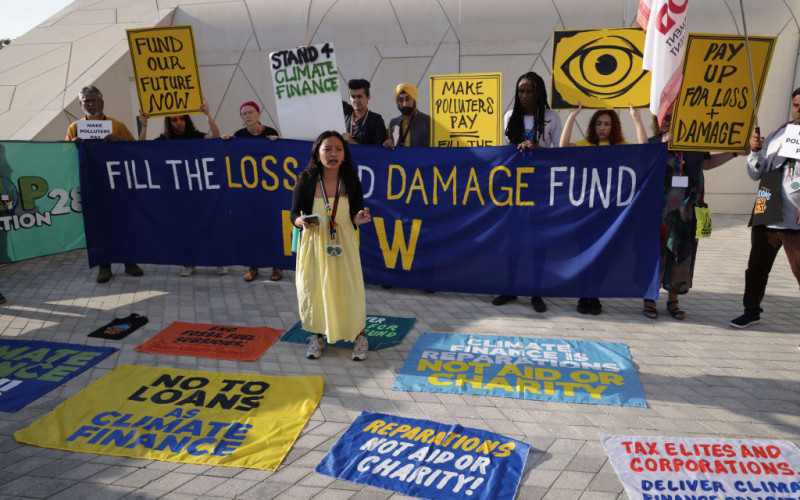In 15 years, the snows of Kilimanjaro will have passed into folklore. Africa’s tallest mountain has lost 85% of its ice cap since 1920, and global warming is melting the rest, climate experts warn.
But the threat of rising global temperatures goes far beyond changes to the postcard images tourists see. The Intergovernmental Panel on Climate Change predicts that global average temperatures will rise from 1.4°C to 5.8°C by the end of this century. As the world’s poorest, most agriculturally dependent continent, Africa faces a severe threat from climate change that scientists predict will spread infectious disease, increase the length and severity of droughts, reduce access to clean water, intensify the impact of tropical storms and spread desertification.
‘Climate change has been happening for some time, what is dangerous is the speed of that change,’ Sir David King, chief scientific adviser to the British government, told an audience in Johannesburg recently.
King was on a tour of developing countries ahead of the G8 summit, where Britain’s Prime Minister Tony Blair placed climate change at the top of the agenda, along with tackling poverty in Africa. In the next few decades, the two issues may become ever more closely linked.
‘Climate change is a threat to all, although its effects vary. Africa is the most vulnerable continent to climate change,’ King warned.
According to a study in the journal Nature, higher temperatures are accompanied by the spread of disease, including water-borne diseases, heart failure, respiratory disease, rift valley fever in east Africa and dengue fever with its more lethal form, dengue haemorrhagic fever.
Catastrophic
The study concluded that: ‘Climate-change induced excess risk of the various health outcomes will more than double by the year 2030.’ And the World Health Organisation (WHO) estimates higher temperatures have already caused more than 150,000 extra deaths a year worldwide.
‘In the UK, for example, flash floods are becoming more common and more severe. In Africa, drought is likely to grow worse,’ said King. ‘If the continent’s temperature goes up by an average of 2% – and this could double for countries at the centre of Africa – the effect on rainfall is likely to be severe. This will accentuate existing population stresses. Worldwide, rainfall has fallen by 3% since the 1970s while the average temperature has risen 0.5%.’
The recent famine in Niger is the latest reminder of Africa’s vulnerability to failed rains. Across the Sahel to the horn of Africa and as far south as Malawi, the US-funded Famine Early Warning System Network lists a dozen African countries as facing current or potential food emergencies through crop failure, partly caused by drought. Burkina Faso, Chad, Eritrea, Ethiopia, Kenya, Mali, Mauritania, Morocco, Niger, Nigeria, Senegal, Somalia and Sudan, all of which face creeping desertification, face greater risk as more marginal land succumbs to desert. Add to that the nations of Southern Africa that are drought prone – Botswana, Malawi, Mozambique, Namibia, South Africa, Swaziland, Tanzania and Zambia – and those that suffer regular major damage from tropical storms – Comoros, Mauritius, Madagascar, Mozambique and Seychelles. In all, more than half the nations of Africa will likely be directly affected and others will feel the heat through other medical, social and economic effects.
Coastal areas and islands are also at risk, as polar ice caps melt and the sea level rises. Deforestation across Africa, either through resettlement or commercial logging, is worsening the greenhouse effect.
‘Livelihoods built for generations on particular patterns of farming may soon no longer be viable. If not addressed, climate change is estimated to place an additional 80-120 million people at risk of hunger; 70% to 80% of these will be in Africa. With increasing temperatures and extreme weather events, climate change will further erode the quality of the natural resource base, thereby reinforcing conditions of poverty,’ according to ‘Up in Smoke’, a report released just before the July G8 summit by the Working Group on Climate Change, an advocacy group.
The possible extinction of plants used for medicine, as a result of global warming, will also damage the main source of primary healthcare, said the group. Developed countries fail to take these factors into account in their aid strategies, argued the group, which recommended helping Africa move straight to clean energy rather than burning fossil fuels and supporting small-scale agriculture to help farmers adapt to climate change.
The science of climate change
The US has officially questioned whether human activity has caused rising temperatures or whether the present trend could be part of poorly understood global and solar mechanisms that have driven major swings in planetary temperatures long before industrial pollution set in. However, King and many scientists note that there is a measurable correlation between global temperatures and levels of carbon-dioxide – which along with other so-called greenhouse gases have been shown in the laboratory to interact with the sun’s infrared light to raise atmospheric temperatures.
And crucially, the evidence from measuring carbon levels in polar ice caps suggests that there is a lag effect: The more greenhouse gases today, the higher future temperatures. At present, the earth’s atmosphere contains far more carbon dioxide than at any time in the last 60,000 years, which means even if mankind acted swiftly to cut emissions temperatures could continue to rise for decades to come.
‘We have to prepare for the impact, we can’t stop it,’ King warned. ‘Even if we stop the causes of global warming now, the earth will go on warming for another 30 years.’
This delay is matched by political inertia. The US, the world’s biggest producer of greenhouse gases, has rejected the Kyoto Treaty, which sets targets for rich countries to cut carbon emissions. It says any deal must also require action from emerging giants such as Brazil and China. In a modest shift, US President George W Bush acknowledged at the July G8 summit that human activity likely does effect the climate, but the US remains unwilling to abide by Kyoto.
Weakened by the American position, the communiqué from the G8’s summit in July emphasised the dangers of climate change but failed to come up with an action plan committing itself to targets to cut carbon emissions. The G8 backed a bigger role for the World Bank in developing energy projects and rounded up a series of good intentions with this pledge: ‘We will work together to advance the goals and objectives we have agreed today to inform the work of the UN Climate Change Conference in Montreal 2005.’
No action is required from Africa under Kyoto, although South Africa, with its vast coal reserves, has a high level of carbon emissions by international standards. Under the UN Framework on Climate Change Technology (UNFCCT), signed by 180 countries, South Africa is one of the developing countries with strong manufacturing bases that will be asked to cut emissions once the developed world has made progress.
Private sector leads
Amid the political vacuum, the private sector may provide the lead in reducing gas emissions.
‘BP is pioneering a technology that we think holds enormous promise for curbing large amounts of emissions: carbon capture and storage,’ Lord Browne, the chief executive of BP, wrote in the Financial Times in July.
‘The idea is to capture carbon dioxide where it emerges in vast quantities – from power stations. At a site in Algeria, we began work last year on storing the carbon dioxide produced at the Salah gas field, under a joint venture with Statoil, the Norwegian oil and gas company, and Sonatrach, the Algerian national energy company.’
By re-injecting the carbon dioxide into deep wells, the project will reduce greenhouse gas emissions by the equivalent of taking 250,000 cars off the road. However, Lord Browne said it would require subsidies to encourage companies to take up this technology, as it added to the cost of generating electricity.
Algeria’s state-owned Sonatrach, by harnessing BP’s technology, shows that Africa can tackle gas emissions with private industry’s help. African governments own or control most national infrastructure and energy resources, including power companies and national oil companies and regulate the operations of multinationals on their territory.
Yet energy policy in leading African oil producers such as Nigeria is often both wasteful and harmful to the environment. Africa continues to overwhelmingly rely on firewood and charcoal rather than cleaner natural gas or electricity.
‘Private enterprise has an important role to play,’ wrote Lord Browne. ‘We should be looking at how to transfer know-how to poorer nations, which cannot afford the same investment in intellectual property. Without this technology transfer, poorer nations will be doomed to satisfy their increasing energy needs by using the old, dirty technologies now superseded in the developed world.’







